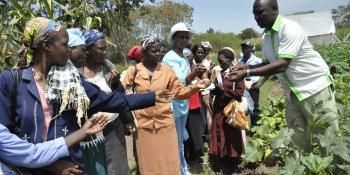In pictures: tenfold potato yield in Lushoto, Tanzania

‘Asante’ means 'thank you' in Swahili. Yet, for farmers in Usambara, Northern Tanzania, it means more than that. 'Asante' now also describes a recently introduced potato variety, which is helping the region become climate-smart.
Potato farmers in Lushoto, Tanzania expect to harvest ten times the usual potato yield despite heat increases and unreliable rainfall patterns. This follows successful action research trials conducted by these farmers together with researchers from the International Potato Centre (CIP), Selian Agricultural Research Institute of Arusha (SARI-Arusha) and Agricultural Research Institute of Mbeya (ARI-Uyole). Their work was supported by the CGIAR Research Program on Climate Change, Agriculture and Food Security (CCAFS) East Africa.
Read about the trials conducted in 2014: Improving potato yields for farmers in the Usambara Highlands
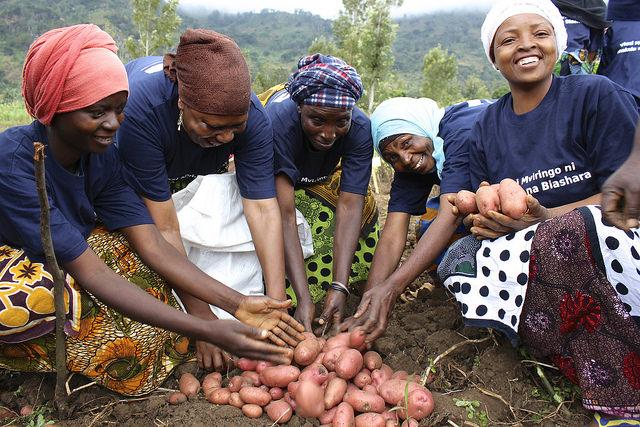
Thanks to resistant potato varieties, Late Blight disease is no longer a serious threat to these farmers.
Late Blight usually arrives with the low temperatures and high relative humidity, which are typical for the region's long rainy season. However, thanks to the improved varieties and good agronomic practices, farmers are assured of a bumper harvest irrespective of prevailing situations. Photo: S. Quinn (CIP)
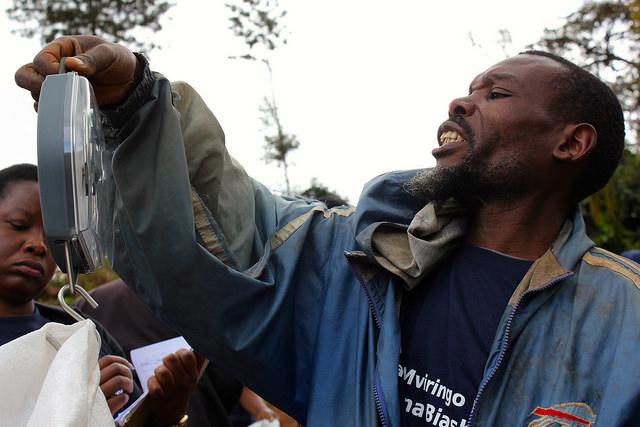
Farmers selected five genotypes, three of which were developed by CIP out of the eight introduced on the basis of their own preferences in terms of crop vegetation, resistance to Late Blight, yielding ability and tuber characteristics. Photo: S. Quinn (CIP)
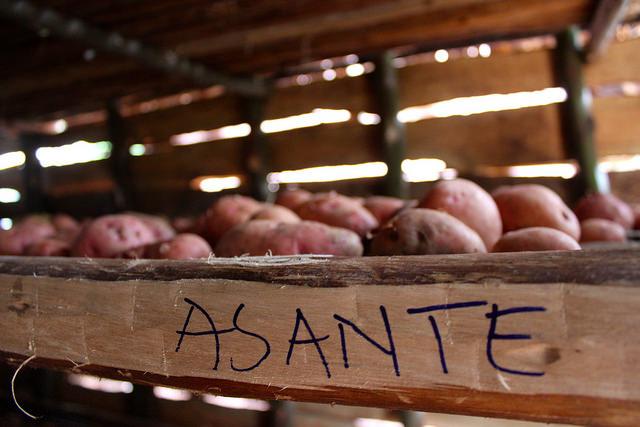
The Asante variety, preferred by farmers in long rainy season of 2014, was multiplied by 34 decentralized seed multipliers in the subsequent short rainy season for seed bulking and distribution to other farmers. This took place in three villages of Lushoto namely Kwesine, Boheloi, and Maringo. Photo: S. Quinn (CIP)
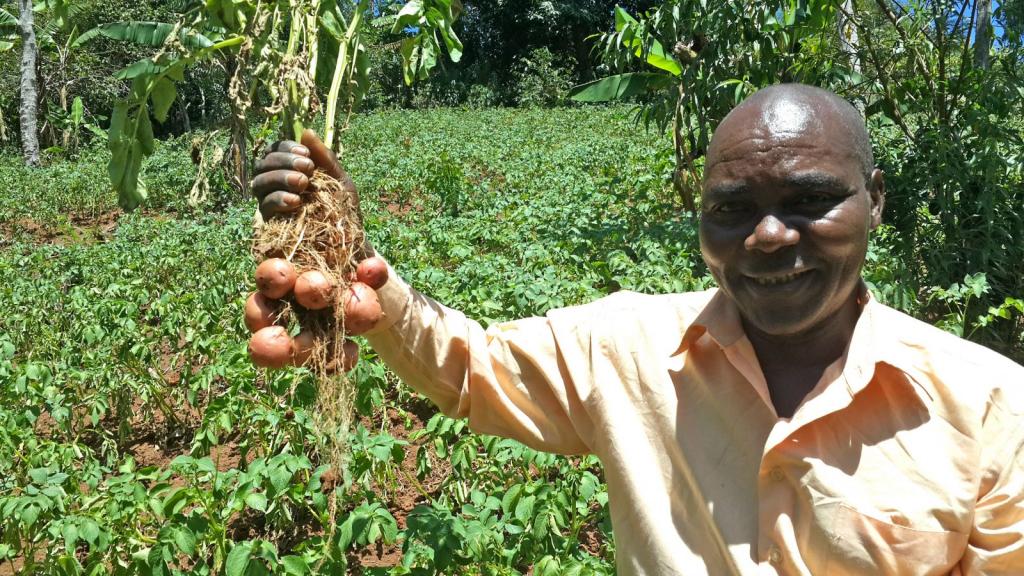
In the May 2015 planting season, 500 farmers will use the improved variety accessible through several decentralised seed suppliers operating in the district. Additionally, they will continue to apply the best practices taught through a well-structured training-of-trainers. Photo: D. Harahagazwe (CIP)
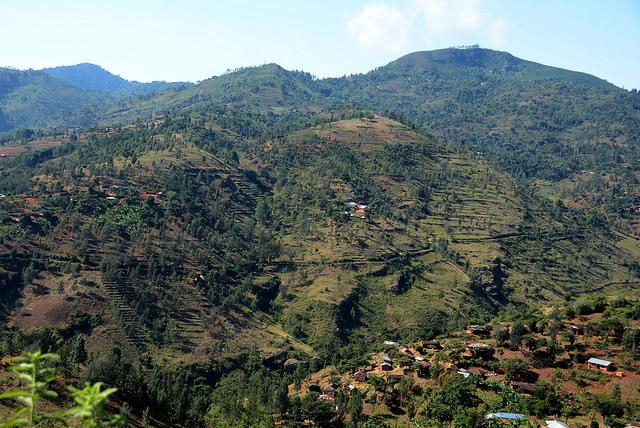
Lushoto is the most densely populated rural district in Tanzania. Situated in the north-east of the country, Lushoto is part of the Tanzanian highlands where potatoes are traditionally grown. Even though potato is a traditional crop, farmers can plant economically only once a year due to heat during the short rainy season. Potato productivity is severely reduced by high temperatures, droughts and climate-driven pests and diseases such as aphids, Late Blight and viruses. Photo: S. Kilungu (CCAFS)
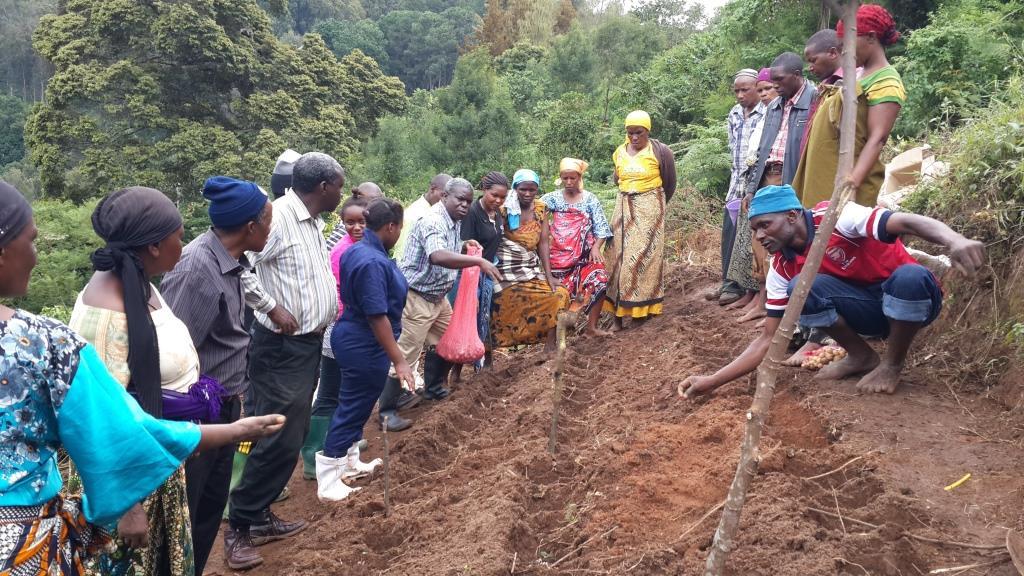
This study aimed to empower farmers to plant year-round while increasing yields. The action research model applied is intensive, as most of the partners involved in facilitation are also trainees. This approach entails combining training-of trainers (ToT) and participatory varietal selection experiments. Photo: D. Harahagazwe
A poster on the study findings was presented at the recently concluded Global Science Conference on Climate Smart Agriculture
Participatory action research in CSVs of Tanzania: Fast-track for new potato resilient varieties
Dieudonné Harahagazwe is a Crop Ecophysiology and Modeling Scientist, International Potato Center, Kenya. Vivian Atakos is a Communications Specialist, CCAFS East Africa



